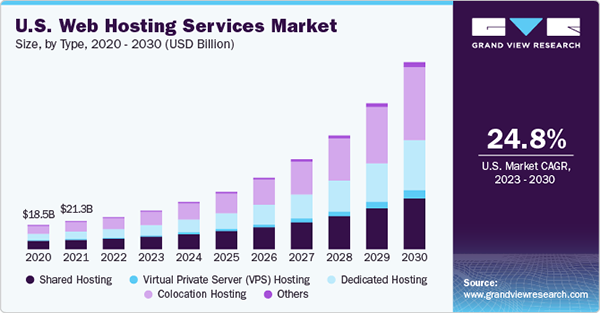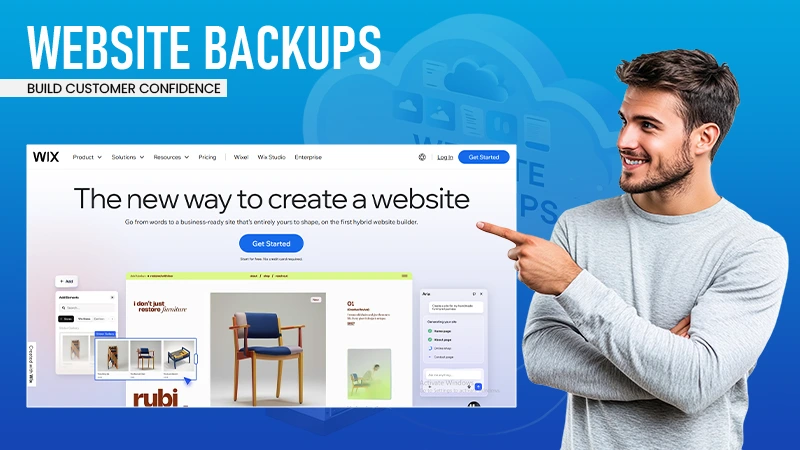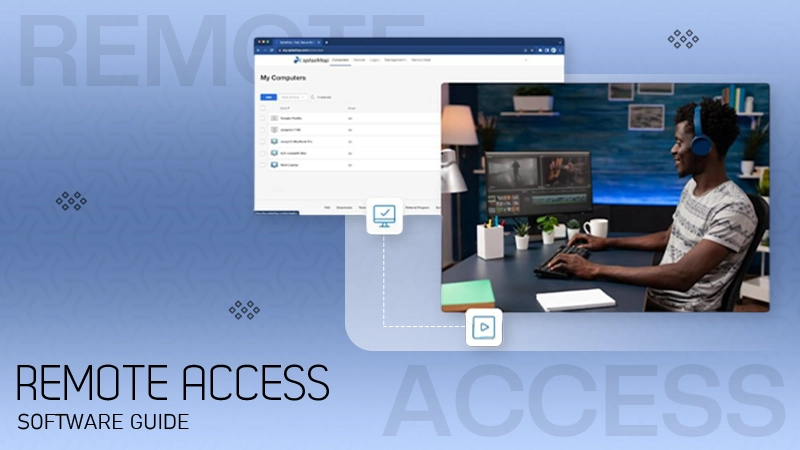It is the ability of a system to adjust its resources to handle a growing number of messages, users, and traffic without compromising speed, reliability, or security.
Email Hosting Scalability: Meeting Your Business Needs
- Email Hosting Scalability: What You Need to Know
- Scalability Failures: Why Traditional Email Doesn't Cut It for Growth
- Solutions for Scalable Email Systems: What to Look For
- Find a Scalable Email Hosting Provider
- Email Infrastructure Growth Planning
- Bottom Line: Scale Your Email Smart or Pay the Price
- Frequently Asked Questions

Growing your business can be a great journey, but it often comes with its own set of challenges, especially when it comes to your email system. Forbes’ report states that email is a part of the marketing strategy of 81% of companies. If you have ever felt the strain of your email hosting not keeping pace with your expansion, you are not alone.
Many businesses reach a critical point where their email needs evolve, and what once worked for a small team quickly becomes inadequate as the workforce grows. Unfortunately, many companies make this mistake and realize it too late.
However, you can still implement a strategic approach to email hosting and scale your business. Still not sure? Let’s explore this article, focusing on email hosting scalability.
Your complete email scalability cheat sheet:
- Email Hosting Scalability: What You Really Need to Know
- Scalability Failures: Why Traditional Email Doesn’t Optimize It for Growth
- Solutions for Scalable Email Systems: What to Look Out For
- Find a Scalable Email Hosting Provider
- Email Infrastructure Growth Planning
Email Hosting Scalability: What You Need to Know
Scalability in email hosting goes beyond volume.
Most people do not know what email hosting scalability really means.
It’s about setting up an email environment that can grow with your business without affecting your budget or sanity.
Shared email hosting looks like a perfect fit for small businesses. It’s low-cost, easy to set up, and serves 90% of people’s basic needs. However, as you expand, a series of challenges will pile up:
- Storage limitations make you erase critical emails
- Performance issues occur during peak business times
- Security issues leave you susceptible to attack
- Integrations with other business applications are unsuccessful
- Customer support falls short when you really need it
It’s for this particular reason that selecting the Best Email Hosting in Singapore becomes essential for expanding businesses that tend to depend on fast, scalable email hosting services.
According to recent market analysis reports, the email hosting services market will grow by $54.23 billion by 2028. That’s an incredible growth rate driven by businesses ultimately understanding they need scalability.
Unfortunately, most businesses leave it generally too late to upgrade. They stick with basic email hosting through to the point of catastrophe.
Scalability Failures: Why Traditional Email Doesn’t Cut It for Growth
Traditional email server management is perfect until it isn’t.
The issue is that these email solutions were never meant to be scaled. They’re designed around a predetermined, moderate use case. All of a sudden, your small business is doubling in size every few months.
It’s time for your email systems to start breaking.
The reasons email scalability usually fails:
Storage Becomes a Pain Point
Employees hit storage limits. Important emails start to get purged. Attachments disappear. Your email hosting can’t keep up because you lose vital business information.
Performance Takes a Dive
Email load times increase. Sending an email can occur over several minutes. Your employees lose hours of productivity while waiting for an email response. Overall productivity nosedives.
Security Vulnerabilities
Basic email hosting approaches have weak security. As your business scales up, you become a bigger target for attack. You’re vulnerable if you don’t have adequate security.
Integration Issues
Your CRM is no longer transferring information. System of automation of the market. Your project management software can no longer connect. Everything begins to stop working in tandem.
As a result, your email system shifts from being a wonderful business enabler to becoming a major point of friction.
Solutions for Scalable Email Systems: What to Look For
Ready to start dealing with your email scaling issues?
Here are the real solutions that can help:
Cloud-Based Email Hosting
Cloud email hosting offers limitless scalability without the complexity of on-premises infrastructure. Cloud systems also offer pay when you go pricing. You pay for the storage and users you use.
This solution provides:
- Automatic scaling during peak load periods
- Predictable cost that scales with your needs
- Built-in redundancy that prevents downtime
- Professional grade security and data protection
Enterprise Email Solutions
Businesses that need maximum control and configuration will benefit from enterprise email solutions. These systems provide dedicated resources with extensive customizability. Enterprise systems can manage extreme email volumes without breaking a sweat.
Enterprise email offerings typically include:
- Dedicated server resources
- Advanced security and privacy features
- Custom domain management
- Priority support and service level agreements
- Seamless business application integrations
Hybrid Email Systems
Businesses often find a hybrid approach works best. The most critical and sensitive systems remain on premises, while more general email use is transferred to the cloud for scalability.
A hybrid email setup gets you the best of both possible worlds:
- Control over the most sensitive data
- Scalability to meet your interpersonal requirements
- Cost efficiencies by optimizing resource use
- Flexibility to shift workloads as needs change
Find a Scalable Email Hosting Provider
Email hosting providers are not all created equal.
Here’s how to know what to look for:
Proven Scalability Experience
Your provider should have a lengthy tradition of helping companies grow. Look for case studies that show how other business scale their email systems.
Transparent Pricing Structures
Stay away from providers that have unexpected fees or wonky pricing models. The last thing you need is to get blind sided with increased costs as you grow.
Robust Security Features
Email hosting should come with malware scanning, spam filtering, and encryption security features. Don’t skimp on security only to save some money in the short term.
Seamless Integrations
Modern businesses run on multiple software platforms. Your email hosting should be able to seamlessly communicate with all your existing business software applications.
Solid Customer Support
You’ll need fast, knowledgeable support to help you when things go wrong. Look for business partners that offer 24/7 customer support with guaranteed response times.
INTERESTING FACT
The worldwide web hosting services market was valued at USD 77.78 billion in 2022 and is expected to reach USD 320.62 billion by 2030, expanding at a CAGR of 20.2% between 2023 and 2030.

Email Infrastructure Growth Planning
Astute companies begin planning their email scaling strategies well in advance.
Here’s how you do it properly:
Assess Your Current Usage
Know where you’re starting with storage needs, email usage, and growth trends. Having a good idea of your baseline requirements may help you make smart scaling choices.
Forecast Future Needs
Project out your future email hosting require using your business growth plan. Consider employee counts, storage increases, email volume growth, and new integrations you will want.
Allow Buffer Capacity
Don’t organize your email hosting service to hit exact requirements. Consider adding 20-30% more capacity to your email hosting. This will ensure you can handle unexpected growth surges or seasonal spikes.
Have a Migration Plan
Switching email systems requires planning. Put together a migration plan that minimizes business downtime while preserving all your existing emails.
Monitor and Optimize Regularly
Regularly review your current email hosting performance and pricing. Are you getting good value? Are there potential performance shortcomings on the horizon? Always keep an eye on your email health.
According to new research reports from reputable organizations, 70% of small businesses consider email to be essential to communication. The problem is that most don’t have a good email scaling plan.
Bottom Line: Scale Your Email Smart or Pay the Price
Email hosting scalability isn’t recommended for growing businesses.
The businesses that get this perfect scale with graceful communication. The businesses that get this wrong face security breaches, severe disruptions, and lost employee productivity.
What should you do?
- Evaluate all of your current email hosting for bottlenecks
- Research scalable email hosting solutions that coincide with your needs
- Pick an email service provider with a track record for scalability
- Plan your email migration process with care
- Build in regular performance and cost monitoring
Do not wait until your email systems fail. Start developing your email hosting scalability strategy today.
Businesses that proactively scale their email infrastructure stay one step ahead of the competition. Businesses that do not end up playing catch-up with email issues instead of growing their business.
Frequently Asked Questions
What is email marketing scalability?
Why is scalability important for business email hosting?
It enables the email system to easily grow alongside the business, adapting to increased users, data, and traffic without compromising performance or reliability.
What are the key factors to consider for scalability?
Technology infrastructure encompasses cloud services, data management, operational processes, financial planning, security measures, and monitoring.
How to assess scalability needs?
Evaluate your current resources, predict user growth, and assess storage and bandwidth needs.
“Stop selling. Start helping.” — Zig Ziglar (Author) And the personnel who sell the hardest to clients and help the…
Digital storefronts are always at risk of losing files. In the case of a system failure, the effects on sales…
USB drive not showing up, acting slow, unreadable, or showing as RAW? Please, don’t format it immediately. I am going…
“Those who do not live in the past cannot live in the future.” — Lord Acton (19th-century historian) This is…
Healthcare data is dynamic. It travels through cloud backups, billing offices, nurse stations, insurance systems, reception desks, and occasionally across…
You’ve poured your heart and soul into creating your website. Every blog post, product description, and stunning image is a…
For a long time, remote desktop technology was the domain of IT support technicians and spreadsheet-heavy administrators. If the connection…
Are you wondering what speech basics are and what you capture, how to store it and analyse the same without…
If your Android suddenly shows Safe Mode, or you just want to undo Safe Mode after finishing your task, you…





